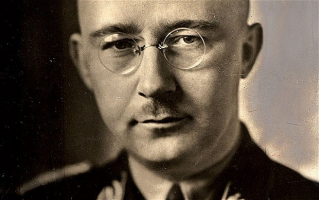Top 9 Interesting Facts about Mitt Romney
Utah senator and member of the Republican Party Mitt Romney assumed office in January 2019. He was born Willard Mitt Romney on March 12, 1947, in Detroit, ... read more...Michigan. He had a long background in politics and a prosperous business career before becoming a senator. The Mormon Church has gained more recognition in American politics as a result of its outspoken association with the Church of Jesus Christ of Latter-day Saints. Here are some interesting facts about Mitt Romney.
-
The Romney family is well-known in American politics. George W. Romney (1907-1995), the 43rd Governor of Michigan (1963–1969), and his son Mitt Romney are prominent Romney family members (born 1947). In addition to serving as the Republican Party's 2012 presidential contender, Mitt Romney served as Massachusetts' 70th governor from 2003 to 2007. He is presently the senator from Utah. Gaskell Romney, George W. Romney's father, lived from 1871 to 1955, and Anna Amelia Pratt, his mother, lived from 1876 to 1926. Parley Parker Pratt, a well-known early Latter-day Saint apostle, was Anna's grandpa.
The Romneys are "an LDS political dynasty" and "LDS royalty," according to authors Richard and Joan Ostling, who based this assertion on the family's ancestry and current prominence in commerce, politics, and The Church of Jesus Christ of Latter-day Saints. The family has a marital connection to the Smith family as well as lateral connections to the Matheson, Huntsman, and Eyring families. There is a Romney family branch living in the Mexican Mormon colonies. In the 1840s, the Romney family left Dalton-in-Furness, England, and immigrated to the United States.
Between 1954 through 1962, George Romney, Mitt Romney's father, served as chairman and president of the American Motor Corporation. Mitt Romney's involvement in a constitutional conference to rewrite the Michigan Constitution in 1961 marked the beginning of his political career, which is an intriguing fact about him. He took office as Michigan's 43rd governor in 1963, becoming a Republican in a state that was dominated by Democrats. In 1968, he sought the Republican Party's presidential candidacy but lost to Richard Nixon, who later took office. Nixon and Romney Sr. did not get along, and after Nixon was re-elected in 1973, Romney Sr. quit politics to support volunteering.
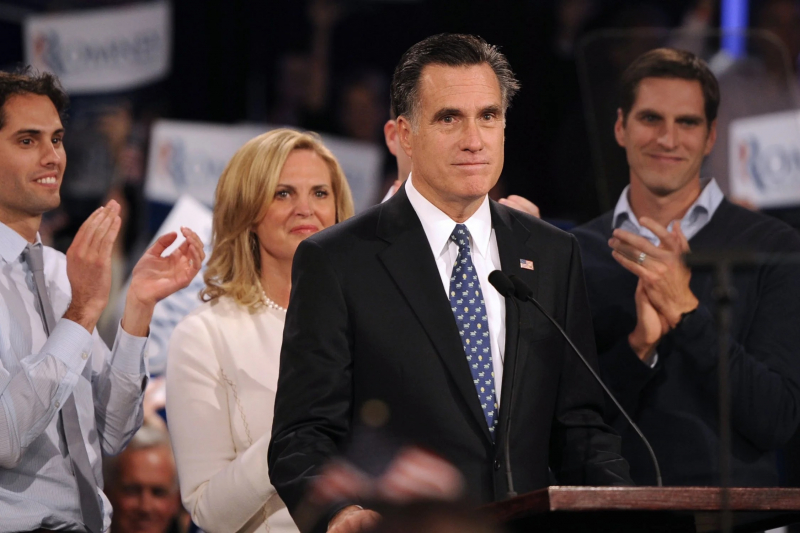
Source: fox8.com 
Source: mprnews -
This is one of the interesting facts about Mitt Romney that many people may not know. Romney and his family are Mormons or members of the Church of Jesus Christ of Latter-day Saints. Romney, an LDS Church member of the fifth generation, left his studies at Stanford in the 1960s to devote thirty months to a Mormon mission effort in France. After suffering catastrophic injuries in an automobile accident, Romney went back home. In 1969, he wed Ann Davies, his high school sweetheart; together, they had five sons and twenty-four grandkids. The same as his father, grandpa, and great-grandfather before him, all of his sons went on to become missionaries. He continued to be involved in the church, subsequently serving as a stake president and a bishop.
His conversion rate wasn't particularly exceptional, and he later calculated that he only succeeded in winning over ten to twenty people over the course of his involvement with the project. But he did develop a well-deserved reputation for perseverance, winning praise for both the number of houses he visited and the number of houses that asked him back. He was elevated to co-president of the mission by June 1968.
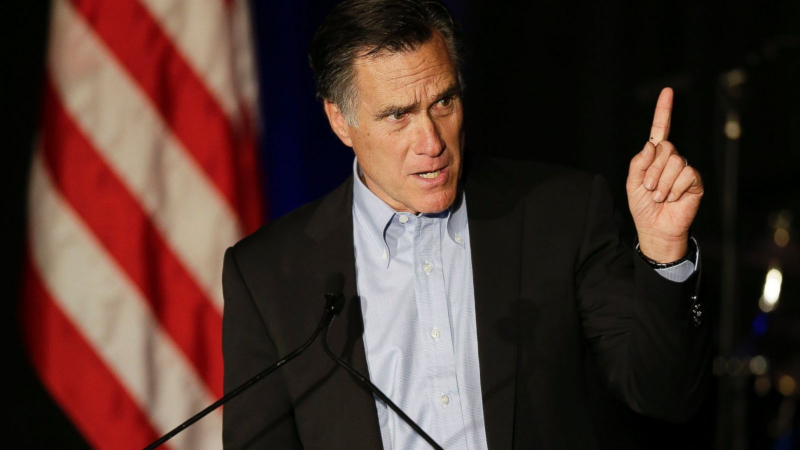
Source: abcnews.go.com 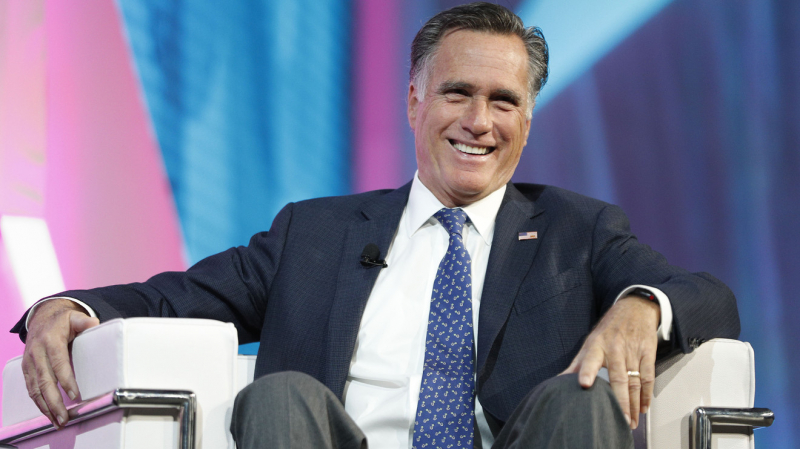
Source: marketwatch -
Nobody can deny Romney didn’t have a good start in life. His father, George, was the chairman and CEO of American Motors. The motoring giant was saved from bankruptcy in the 1950s by his father and brought the company back to profitability. He also served as Michigan's 43rd governor from January 1, 1963, until January 22, 1969. Romney had a sizable fortune due to his father's passing in 1995, but he decided not to take it and instead gave it to charity.
Mitt Romney was a co-founder of Bain Capital, one of the most prosperous private equity investment companies in the nation, in 1984. He was the CEO of Bain Consulting prior to this when he helped the company survive the financial crisis. Successful investments by Bain Capital have been made in household names like Dunkin' Donuts and Staples. Experian's sale brought in $700 million for them and its partners, and the sale of Italy's Seat Pagine Gialle brought in over $1 billion. Deals like this made the company's executives immensely rich, and a conservative estimate of the Senator's net worth puts it at $250 million.
Due to his successful business career, Romney and his wife established a net worth in the hundreds of millions of dollars; as of 2011, their fortune remained in the region of $5 to $25 billion. Since 2003, the majority of it has been kept in blind trusts. There is also a blind trust in the names of the Romney children, which was valued at $100 million in 2012. The 1995-established trust enables the Romneys to distribute funds to heirs outside of their estate, allowing them to benefit from sophisticated tax planning strategies utilized by high-net-worth families to postpone or lower their tax liability. Romney has a SEP-IRA with a market value of $21 to $102 million. Romney holds some of his financial holdings in investments and accounts located abroad.
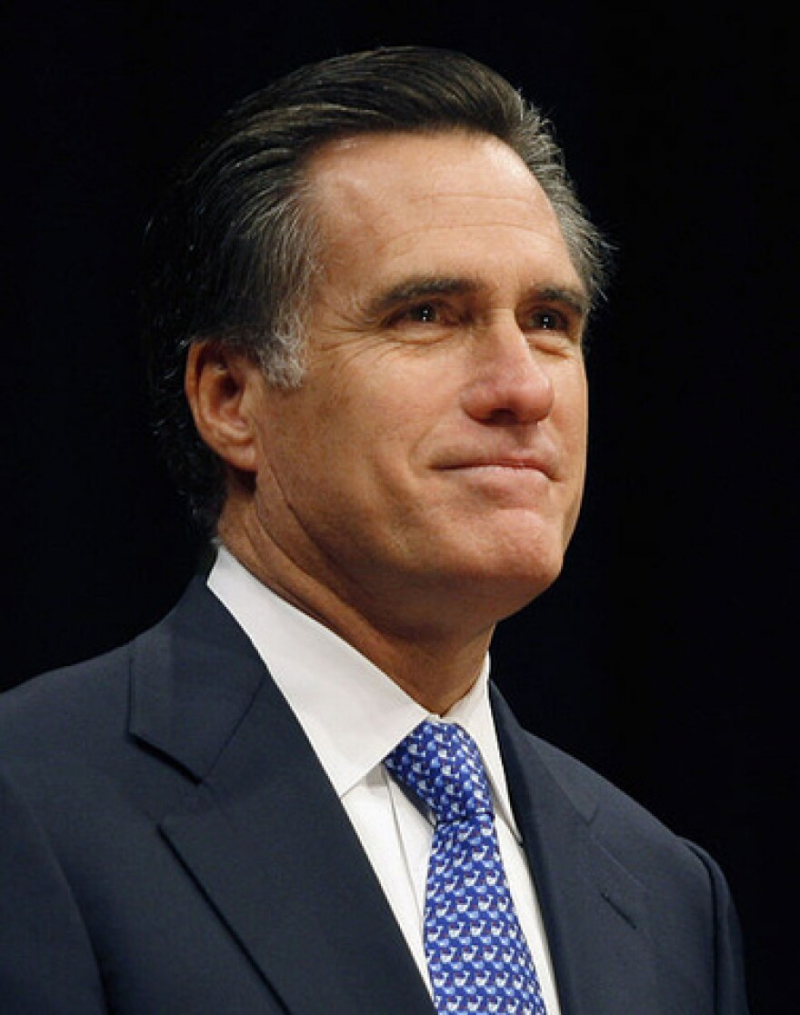
Source: michiganradio 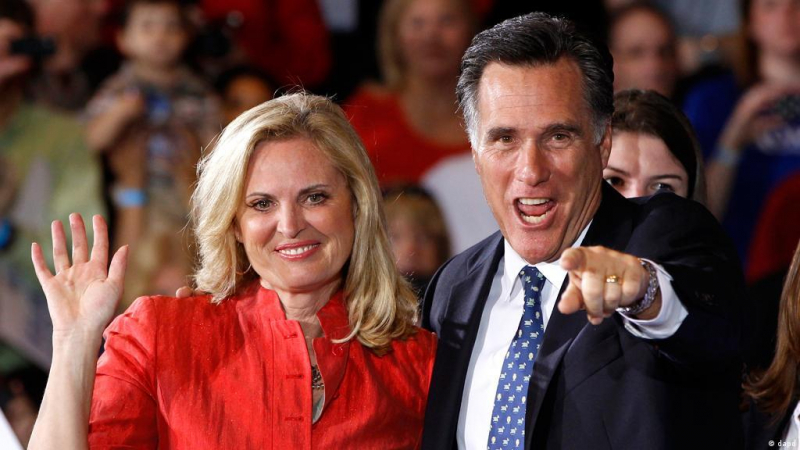
Source: dw.com -
The bid to host the 2002 Winter Olympics was won by Salt Lake City in 1995. However, the organizing organization was charged with buying IOC members' votes in 1998 in order to win the bid. The two men in charge of the organizing committee quickly announced their resignation, and several others did as well. The fact that Mitt Romney was hired to lead and restructure the committee is an intriguing truth about him. He was able to regain the sponsors' confidence and make sure the event went on to become one of the most prosperous Olympic Games ever. Although independent investigations into the Salt Lake City Olympic controversy concluded that nothing technically criminal had occurred, steps were made to regulate future Olympic bid-related activity.
It was a crucial time for Romney, who had returned to Bain following his unsuccessful 1994 attempt to replace Massachusetts Senator Edward Kennedy. His political career was revived and thrust into the national limelight by the Salt Lake assignment. Additionally, it was a launching pad for his successful 2002 run for governor. That achievement is cited by the Romney campaign as a shining illustration of his renowned managerial prowess. Turnaround: Crisis, Leadership and the Olympic Games is a book that Romney published about the subject. Romney's Olympic effort is praised by those who worked closely with him in Salt Lake City. One of them, Mike Leavitt, the former governor of Utah who chose Romney to run SLOC, is currently Romney's campaign manager.
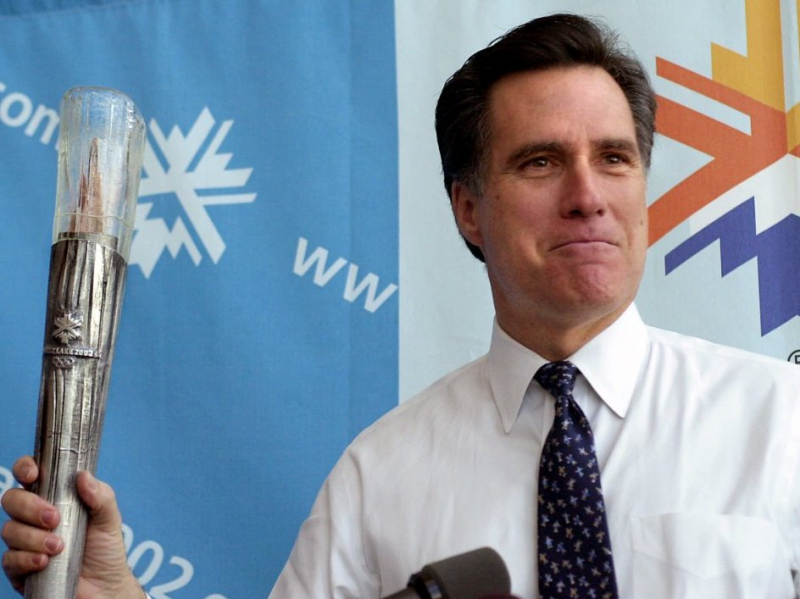
Source: npr.org 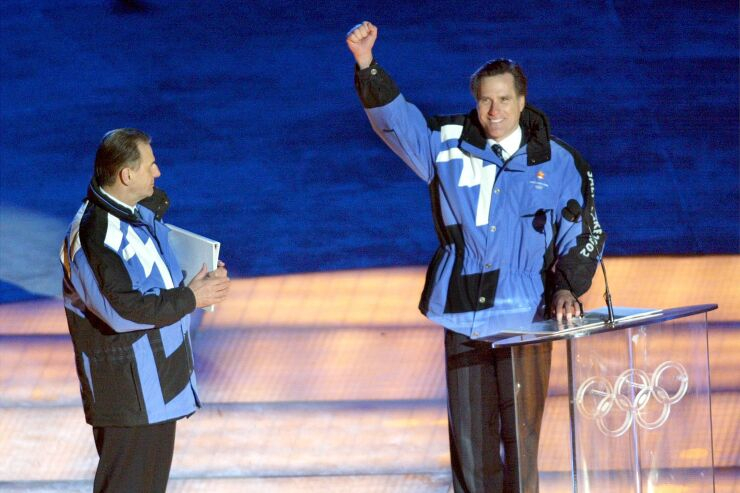
Source: deseret.com -
Romney had a well-earned reputation as a joker in college. His "hijinks and pranks" included arranging formal dinner parties on the streets, sliding down golf courses on huge ice cubes, dressing up as a police officer, interrupting courting couples in automobiles, and, less lightheartedly, pinning down another student and shaving off his hair. After learning that during his senior year of high school, he had played a key part in a bullying episode against a fellow student who was thought to be gay, Mitt Romney apologized for his behavior.
Romney tried to limit the consequences by using a radio interview to apologize to anyone harmed by what he referred to as "pranks" after his campaign managers maintained the presumed Republican nominee for president had no knowledge of any of the events described in the Washington Post piece. Romney was defended by several Republicans, who charged that the Democrats and certain media outlets had blown out of proportion an event involving a schoolboy.
Romney stated he was not very concerned by the Post article during the radio interview. When questioned about the Lauber incident, he said, "You know, I don't." He added that there was no homosexual connotation to the pranks he played. "Whether someone was homosexual, that was the furthest thing from my mind back in the 1960s, so that was not the case." Students who claimed to have been the targets of pranks "didn't come out of the closet until years later," he said. It all happened a long time ago, according to Romney. "As for the teasing and the taunts that go on in high school, that's a long time ago. For me, that's about 48 years ago, if there's anything I said that was offensive to somebody I'm certainly sorry about that, very deeply sorry about that," he said.
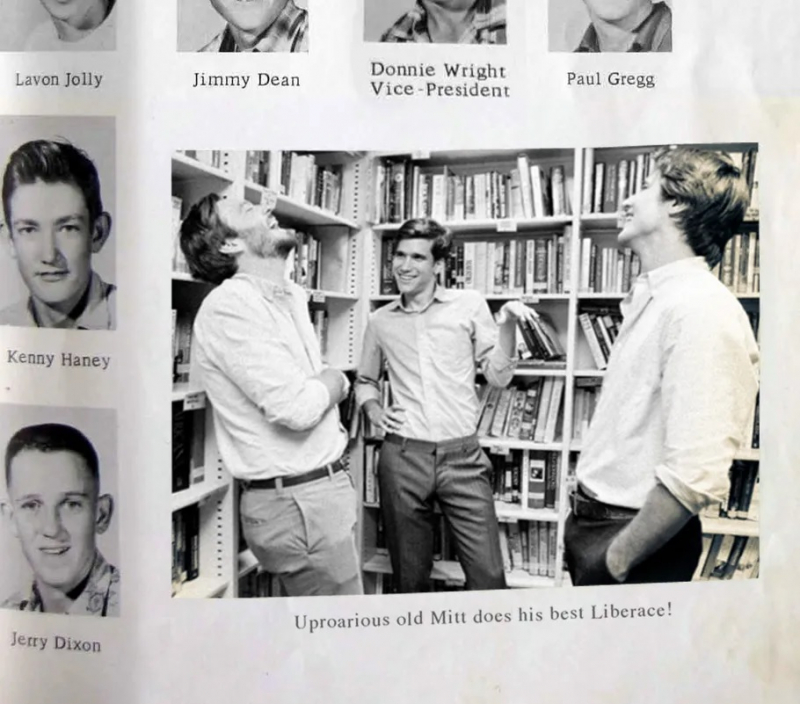
Source: vanityfair 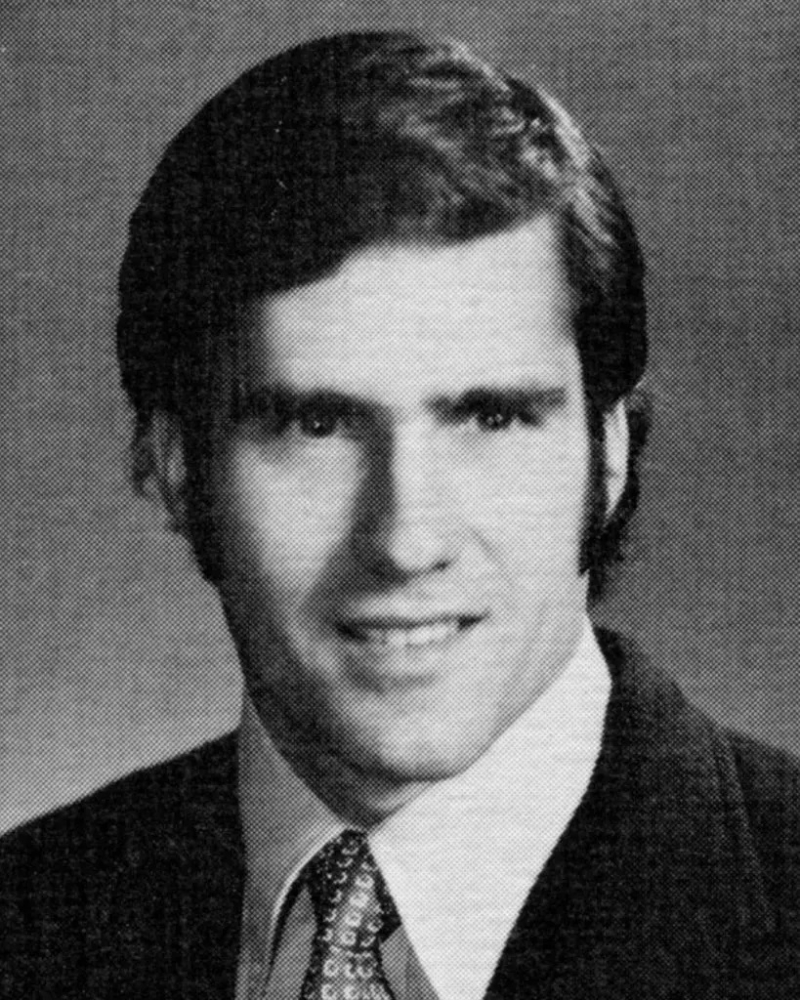
Source: nytimes -
Before running for president and before becoming the 70th governor of Massachusetts, Mitt Romney had quite the life. The politician managed to complete college, start a family, and survive a catastrophic vehicle accident in which one other person died. What is actually known about Romney's experience with being close to death? The bizarre tale began when Romney was a missionary for the Church of Jesus Christ of Latter-day Saints in his 20s (per US News & World Report). A teenage Romney received a draft deferment during the Vietnam War, allowing him to visit France in 1966 to share the Mormon faith. He was traveling in a five-seater Citroen DS at the time, together with the mission leader, his wife, and three other people. They were struck head-on by another car, which killed the mission leader's wife.
The severity of Romney's personal injuries led first responders to believe he had passed away. A picture of Romney as a young man with a cast on his arm and a black eye was taken after the accident while he was in the hospital and later released by the Daily Mail. After his wife passed away, the missionary leader departed France, and Romney, who had been sent to Paris, took up a lot of the church's tasks (via The Daily Beast).
The Daily Beast was given insight into the significance of that tragic day by Françoise Calmels, a representative for the Church of Jesus Christ of Latter-day Saints in France. Everyone is sad when someone they know passes away, but the Church goes on, according to Calmels. "52,000 of our missionaries worldwide are assaulted and killed every year. It is both possible and common. They receive a mark from it." Romney has said that serving on a mission in France allowed him to "grow up" and deepen his religion. "On a mission, your faith in Jesus Christ either evaporates or it becomes much deeper," he told The New York Times in 2007. "For me, it became much deeper." While he may not have won the presidency, Romney's unsuccessful campaign must have seemed like little potatoes to someone who went through what Romney experienced at such a young age.
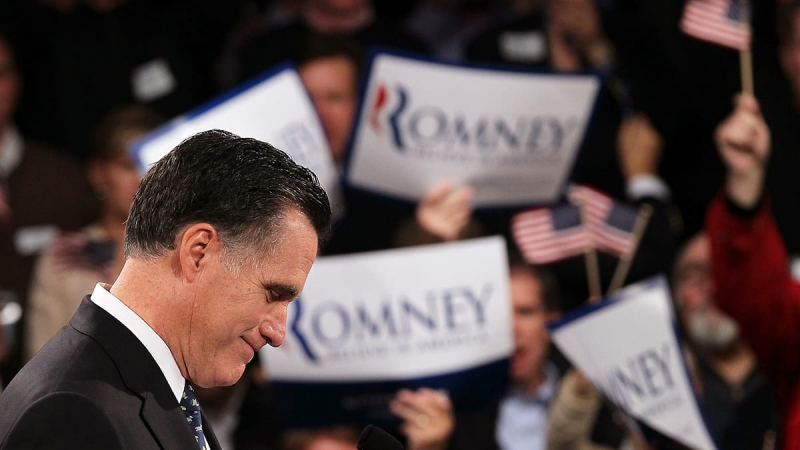
Source: thedailybeast 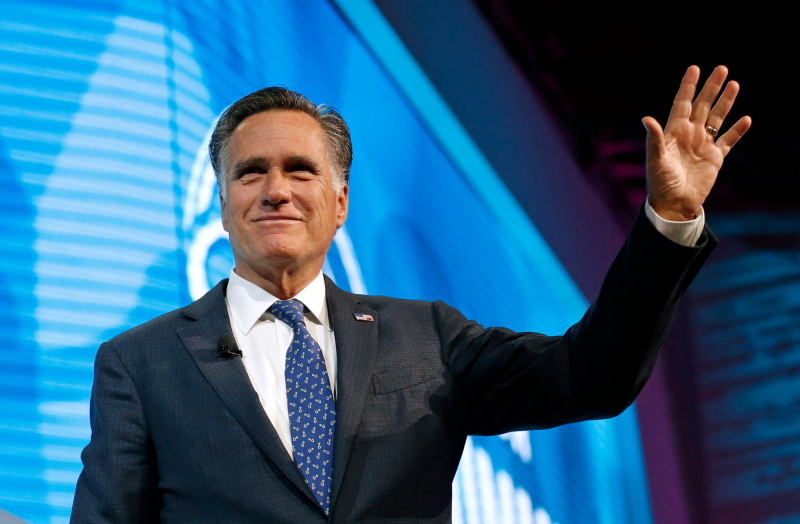
Source: nytimes -
Because he was detained for disorderly conduct in 1981 after launching his boat into a lake in Massachusetts while on a family vacation, Republican presidential candidate Mitt Romney is familiar with what it's like to be on the receiving end of the legal system. According to BuzzFeed's Andrew Kaczynski, Romney was about to launch his family boat when a park ranger cautioned him not to because his license seemed to have been painted over. Romney was warned by the police that he would be fined $50 if he placed his boat in the water. Romney chose to defy the officer's directive and pay the charge because he believed that his license was still clearly visible. Romney said that the officer just informed him that doing so would result in a fine rather than telling him not to launch his boat. The officer returned, this time clearly enraged, and detained Romney for disorderly behavior when Romney launched the family boat. Romney was immediately placed in handcuffs, transported to the neighborhood police station, and lodged.
When Romney campaigned against Sen. Ted Kennedy for the U.S. Senate in 1994, the details of his arrest first surfaced. The accusations against (Romney) were withdrawn a few days later, and Natick District Court formally dismissed them in February 1982, according to The Boston Globe in 1994. Romney also asked the judge to seal the documents, preventing the public from seeing them. An arrest for disorderly conduct isn't the only occasion when Romney's behavior has flown in the face of the status quo. Romney's involvement in controversial war demonstrations during his first year at Stanford University was brought up again in The Stanford Review.
Kyle Huwa for the Stanford Review reported that in 1966 Romney and a few other students staged a demonstration on campus in favor of the draft rather than against the Vietnam War. "Though they’re probably being used against him today, the photos show a conservative willing to go against the mainstream in an era when such a position was very unpopular, an admirable act in my mind," he said.
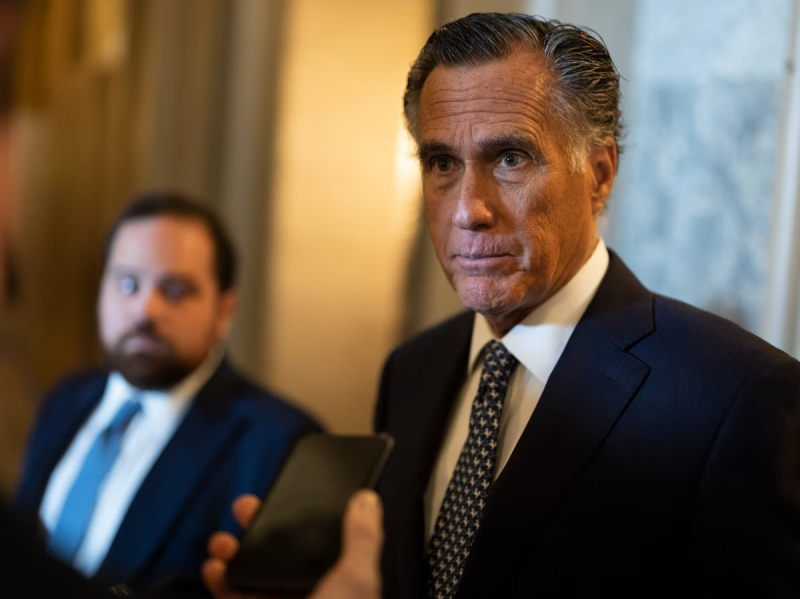
Source: independent.co.uk 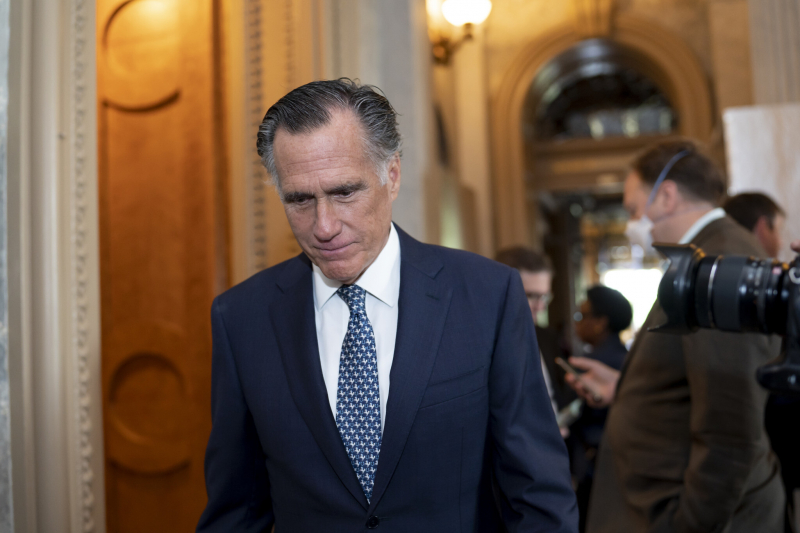
Source: timesofisrael -
While running for the Republican presidential nomination in 2008, Mitt Romney withdrew in support of Senator John McCain. He was successful in securing the Republican nomination in 2012, but Barack Obama, the Democratic Party's nominee, ultimately won the election. An intriguing fact about Mitt Romney is that he would have become the first Mormon president if he had prevailed. He had the option to run again in 2016, but he decided against it. After the 2008 presidential election, Romney developed a plan for the 2012 race and set aside PAC funds to pay the wages and consulting costs of his current political crew as well as to create a political infrastructure for what may end up being a $1 billion race in three years. Additionally, he had a vast network of former employees and supporters who were eager for him to run again. He kept delivering speeches and raising cash for Republican candidates. Instead of accepting a lucrative position as the head of a hedge firm, Romney started a year-long self-education program on international and domestic issues.
Romney won the straw poll for the Southern Republican Leadership Conference in 2010, placed first in the CPAC straw poll in 2009, finished second in 2010 and 2011, and took first place in the New Hampshire straw poll in 2011. Early in January 2012, Romney made his 2010 tax return public along with a portion of his 2011 return, which he vowed to make public in full once it was finished. He made the decision not to release any further returns during the presidential campaign, describing the problem as a distraction from more crucial matters.
Despite his preparations, Romney wasn't sure if he should run for office again. He requested the votes of his close relatives for a 2012 campaign in December 2010. Only Romney's wife Ann and one son voted in favor, and unlike before the 2008 campaign, 10 family members opposed another attempt; Romney informed family members that he would not run again. His wife and political supporters convinced him to reconsider in the spring of 2011, stating that they thought Romney could turn the economy around.
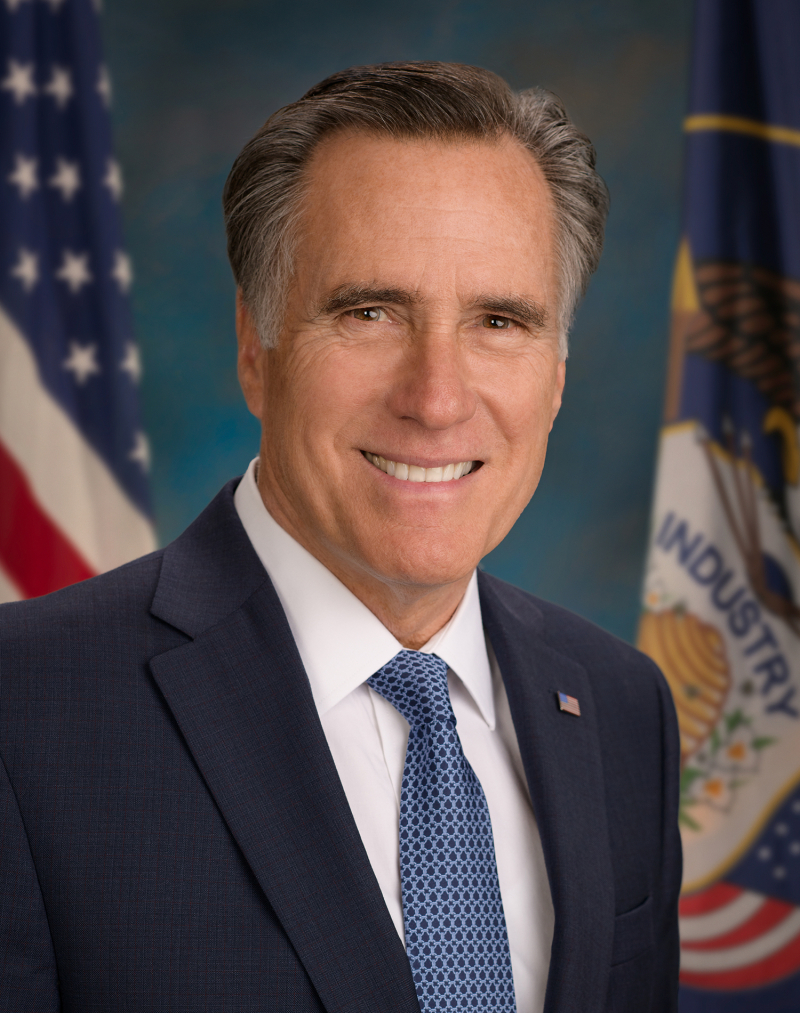
Source: wikipedia 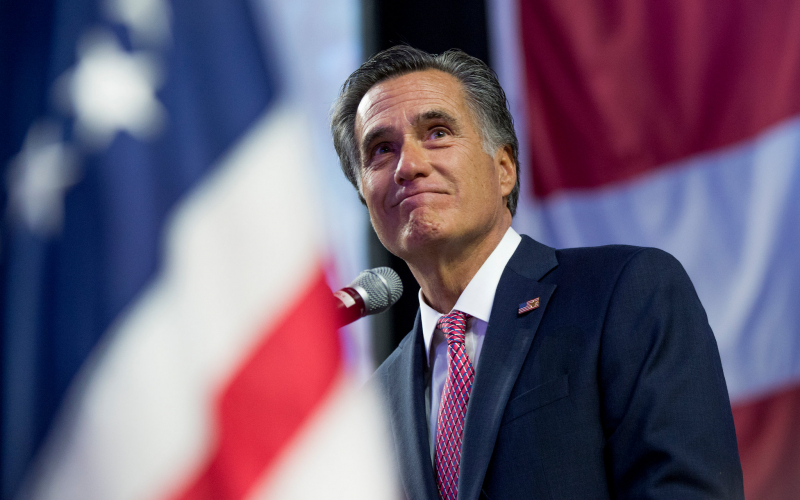
Source: nytimes -
On January 2, 2003, Mitt Romney and Lieutenant Governor Kerry Healey were sworn in as the state's 70th governor and lieutenant governor, respectively. On January 4, 2007, Romney's tenure came to an end, and he decided not to seek reelection. Mitt Romney won a university bursary program for disadvantaged students and practically universal health coverage for Massachusetts citizens while serving as governor of that state. His fiscally conservative initiatives, which resulted in a $3 billion deficit reduction, were what made the state's budget problems disappear. Romney also had conservative views in other areas, such as his opposition to homosexual marriage. He attempted unsuccessfully to have same-sex marriage on the ballot in 2003 after the Massachusetts Supreme Court recognized its constitutionality.
The same Bible that his father George Romney had used at his swearing-in as governor of Michigan was used for Romney's swearing-in as governor. He avoided discussing particular policies in his 15-minute inaugural address to the Massachusetts House of Representatives, but stated that he wanted to create a "lighter, more nimble bureaucracy." The three days of general inauguration celebrations focused on topics related to everyday people. When he took office, Romney had to deal with a state legislature where Democrats owned 85% of the seats. In fact, during the 2002 state elections, the Republican Party of the state did not file a candidate for 62 percent of the seats.
Romney aimed to establish himself as the state's first "CEO governor" from the beginning. Democrat Robert Pozen, a former vice chairman of Fidelity Investments, and Republican Douglas Foy, a former president of the Conservation Law Foundation, were among his picks for the executive cabinet. They were chosen more for their administrative skills than for their partisanship, along with the other cabinet members and advisors. Romney granted them extensive control over the new "super-secretariats" he created. For the duration of their administrations, Romney and Healey both promised to forgo receiving their official salaries.

Source: bloomberg 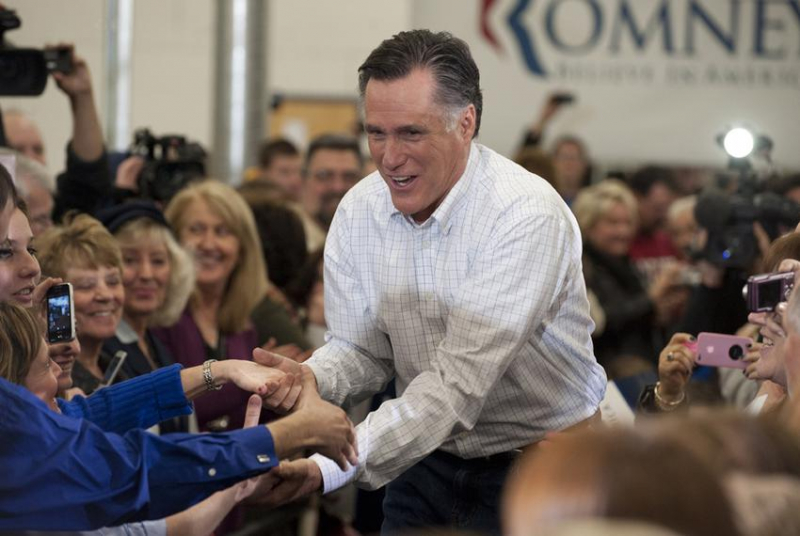
Source: texastribune



























